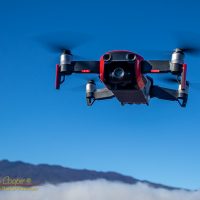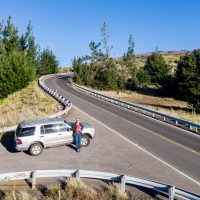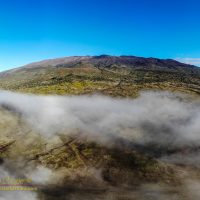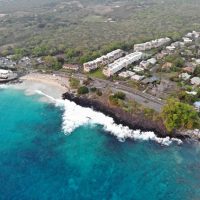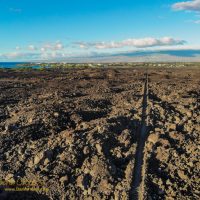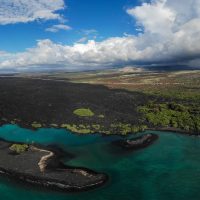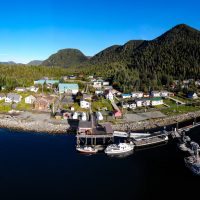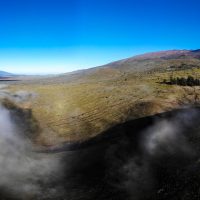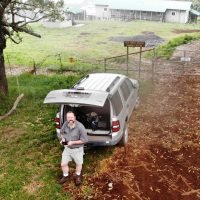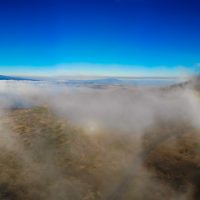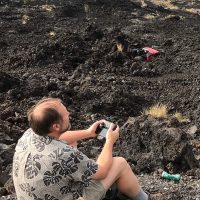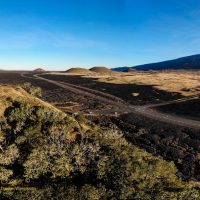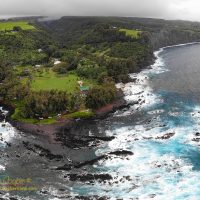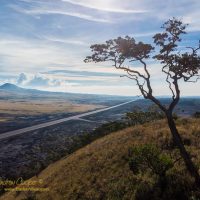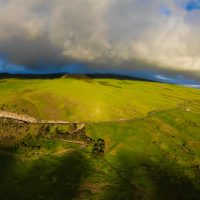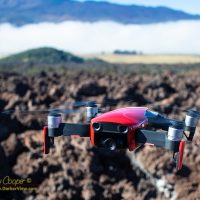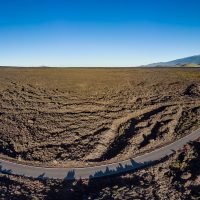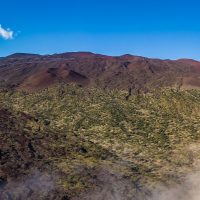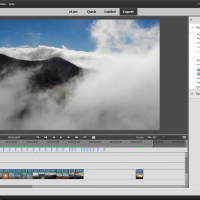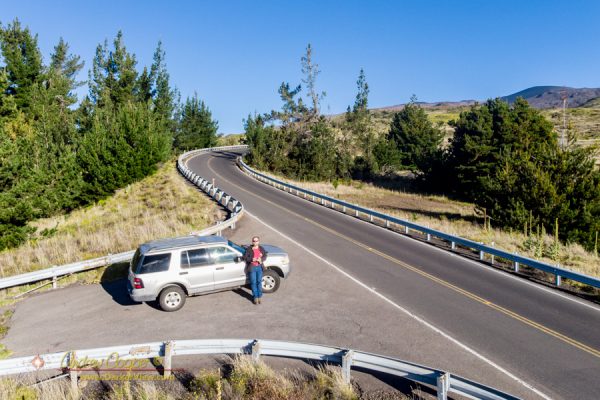Category: Drone
Editing Video
It always amazes me how much time it takes to edit video. Hours of fiddling little details, tweaking, or ripping it out when you decide you got it all wrong.
I am editing drone video, material from mornings and evenings flying in the saddle region of Mauna Kea. I did do a quick video from my first footage in the area, but that was really a learning experience, just seeing what worked and what did not.
This time I am striving for a polished product, not a quick experimental video. That means taking care in selecting each clip, and blending it in properly to the soundtrack and surrounding clips. I am also applying more post processing effects; panning, rolls, and color corrections.
Music is always an issue, the soundtrack makes everything work. In this case I already had a piece of music in mind, a track by a local artist who has graciously given permission to use his artwork.
In the process of editing I end up watching the video hundreds of times, often in little pieces. If I find myself enjoying the product, it might, just might be worth the effort. So far.. So good.
Manipulating EXIF Tags for the Mavic Air
One of the fun things you can do with the panorama images created by the Mavic Air drone is to upload them to places these images can be seen a wide audience. Posting to Facebook is fun, but very few places will see more traffic than images posted to Google Maps.
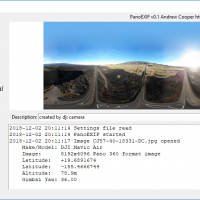
The newer DJI drones like the Mavic Air produce 360 panoramas automatically. Stitched on-the-fly onboard the drone the panoramas are saved to the memory card ready for use at the end of the flight. The images are not without issues, the onboard stitching is quick and small flaws are usually visible. Far better results can be achieved by other stitching software in post, but the drone produced panoramas are generally good enough for web posting.
A Point Without Shadows
I have run into a significant problem I did not expect.
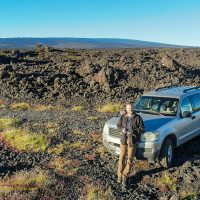
Even better, I need only stop off on the way to or from work at the summit to find time to fly here. Leave for work early, discharge a few flight batteries, join the rest of the crew for breakfast at Hale Pōhaku.
Just after dawn or just before sunset the light accentuates this dramatic landscape, intensifying the colors, the low sunlight angle creating shadows that reveals the stark terrain.
The low sunlight angle causes some problems as well. One I expected… The drone camera does not deal well with glare. Take an image pointing near the Sun and the image is often ruined by the glare. This is discussed in some of the review videos I watched before I bought the drone. Easy to avoid, just point away from the Sun before you start that panorama sequence.
The second major issue I did not expect… Many of the images feature a very bright spot directly opposite the Sun in the sky. This spot is intense, creating a peculiar feature in the photograph that I find distracting.
Flying the Drone
Mauna Kea Morning Air
Inside Passage… One Last Time
OK, you can stop asking for the new Inside Passage video… It is done!
It has bears! Whales! Sea lions! Grizzly bears! Aurora! Lots of drone footage! More bears!
Actually the video came together pretty well. I already had a piece of music picked out, that saved a great deal of trouble. Nearly four weeks on the water meant a great deal of photographic material to work with. As usual the Inside Passage provided plenty of photographic opportunity, particularly the first week when is seemed like even the wildlife was performing on cue.
And there were lots of bears…
The Mavic Air QuickShots
One of the compelling features of the DJI Mavic drones are the quick shot capabilities. These are programmed maneuvers that the drone performs while rolling video. Properly used these pre-programmed shots can be stunningly effective.
The Mavic Air Panorama Modes
One of the most useful features of the Mavic Air are the built in panorama modes. These are pre-programmed maneuvers, like the quick-shots, that take a series of exposures to stitch into a single frame.
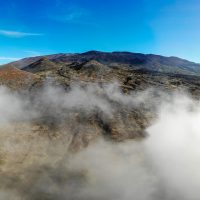
There are two panorama modes I find myself using regularly. The spherical and horizontal modes both offer a view from the drone that overcomes the limitations of the camera.

